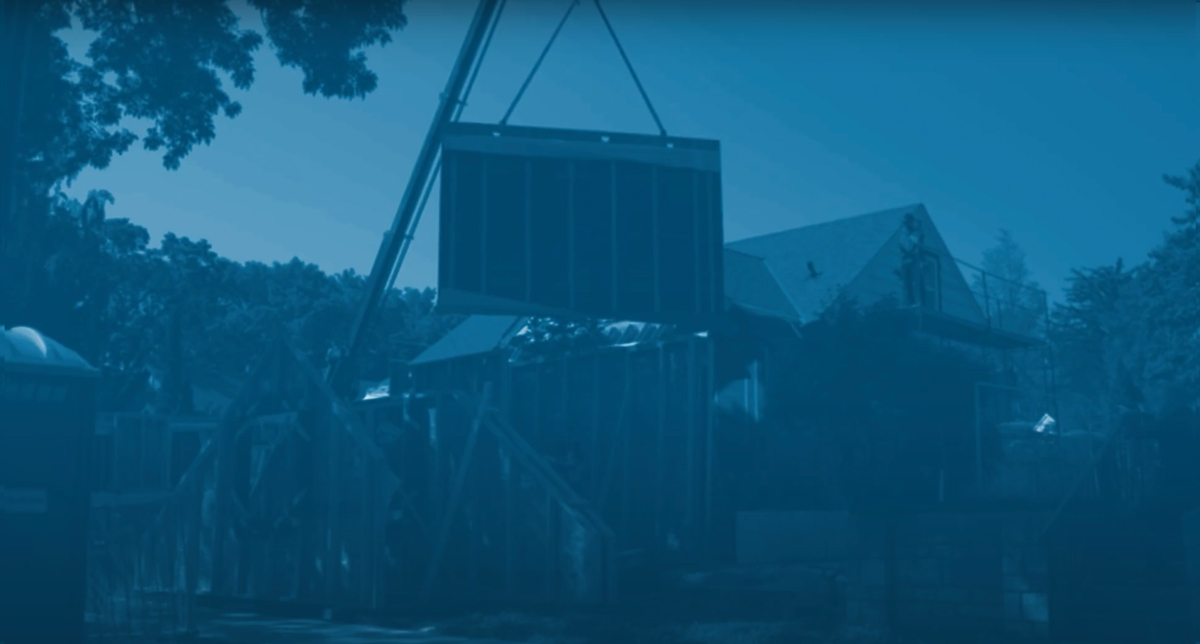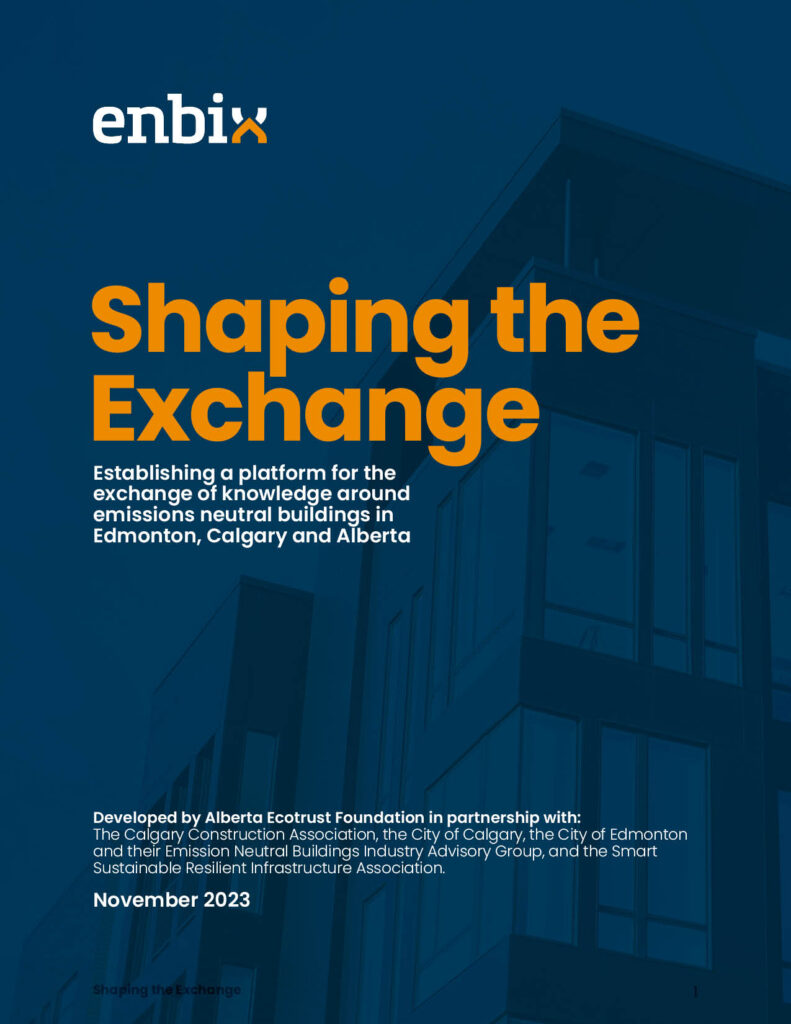About Us
The Emissions-Neutral Buildings Information Exchange (ENBIX) is an industry-led collaborative initiative powered by Alberta Ecotrust.

ENBIX brings together partners who have the shared goal of reaching net-zero greenhouse gas emissions in the construction, renovation and operation of buildings across Alberta.
It promotes the free and rapid sharing of innovative ideas, solutions, best practices and lessons learned among a broad cross-section of interested parties in the building and construction ecosystem.
Participants can connect and exchange knowledge, access training and find other resources.
Objectives
1
Share Knowledge to Build Capacity
ENBIX strives to share knowledge, best practices and lessons learned. It will build capacity within the building industry. It will develop and strengthen skills, abilities, and resources of individuals and organizations.
2
Foster Innovation and Leadership
3
Strengthen Collaboration
ENBIX will strengthen public, private, and overall collaboration. It will break down silos to create meaningful connections and powerful change.
4
Operational Excellence
ENBIX will optimize systems and processes, including management systems, business processes, visibility, expertise and competencies, and engagement approaches to achieve excellence in its work.
Our guiding principles
To accelerate building and renovation practices that lead to emissions-neutral built environments for new and existing buildings across Alberta.
We provide support for commercial and residential buildings, initially focusing on new construction while phasing in services to accelerate retrofits.
We seek opportunities to promote multiple benefits – including climate resilience, affordability, equity and health. We explore how emissions-neutral building concepts can benefit long term housing affordability.
ENBIX is set up so decisions are guided by industry and reflect market realities.
We seek out and listen to diverse perspectives. We welcome innovation and new ways of thinking. We listen, adapt and serve the market we are in.
Our work amplifies and elevates existing work. We don’t duplicate or replace work.
Industry identifies gaps, and we work to fill them through partnerships and new initiatives. We succeed by developing solutions collaboratively.
We welcome best practices and ideas from other jurisdictions, but our solutions are local.
ENBIX showcases leaders, projects and initiatives. We celebrate our wins.
ENBIX is committed to the free and rapid sharing of ideas. It is not a venue for marketing and sale of materials, equipment or services.
Governance
ENBIX is governed in close partnership with knowledgeable industry experts. The industry-led ENBIX Executive Advisory Committee advises on programming decisions.
Our language
We use “emissions-neutral” to refer to a building that is highly efficient and uses only renewable energy for its operations. This term aligns with the City of Calgary and City of Edmonton climate plans.
In some cases we may talk about construction or retrofit projects on a pathway to emissions neutral, or highlight components that could contribute to emissions-neutral projects. We realize some retrofit projects may need to phase in emissions neutrality.
The ENBIX Backstory
Buildings are a major source of greenhouse gas emissions across Canada. While Alberta has not adopted higher-tier building codes, industry leaders understand the need to decarbonize buildings. ENBIX came into existence to facilitate the movement towards an emissions-neutral environment for both new and existing buildings across Alberta.
The ENBIX initiative began in 2022 as a collaboration led by Alberta Ecotrust with support from industry and municipal partners. Alberta Ecotrust led the research and industry engagement to learn what a virtual building information exchange could look like in Alberta. This resulted in a final report called “Shaping the Exchange.”
ENBIX formally launched in December 2023 and is based on similar successful models around the world such as British Columbia’s ZEBx.
Foundational supporters
ENBIX would not be possible without initial support from:

